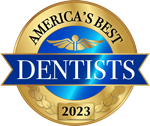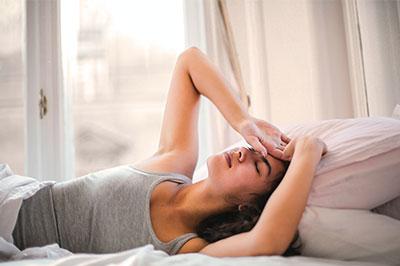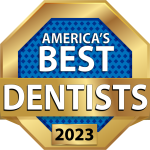We all have a bad night’s sleep from time to time but if you suffer regularly from interrupted sleep or wake up feeling more tired than when you went to bed, consider going to see a dentist. Why? Because you may have sleep apnea and a dentist can help.
What Is Sleep Apnea?
Sleep apnea is a sleeping disorder where your breathing is irregular and may even stop for short periods – this is called an “apnea”. You may not be aware that it’s happening so here are some other signs that a partner also may be able to tell you about:
- Loud snoring
- Gasping for breath when asleep
- Night sweats
- Waking up with a dry mouth
- Waking up with a headache
- Not feeling rested after sleep
This can have knock-on effects throughout the day such as irritability, a lack of concentration and an overall feeling of fatigue. A lack of restorative sleep is also bad for your health overall so what might be going on?
Obstructive Sleep Apnea (OSA)
OSA is quite common in the population, affecting up to 25% of men and about 10% of women of all ages. It’s called “obstructive sleep apnea” as the soft tissue in the back of your throat blocks, or obstructs, your airway when you’re lying down asleep. This causes the gasping or choking, loud snoring and sometimes frequent awakening during the night. While it can happen to anyone, patients more at risk for OSA include those with neuromuscular, cardiac or pulmonary disease, people with certain physical traits such as overbites or large tonsils, or those who are overweight.
How Can a Dentist Treat Sleep Apnea?
So what’s this got to do with your local dentist? If you see your dentist regularly, they’ll be able to check for signs of obstructive sleep apnea and may be able to offer effective treatments. You may have heard of a CPAP (continuous positive airway pressure) machine but they don’t necessarily work out for everyone. Going to a dentist for sleep apnea treatment can include things such as:
- Oral Appliance Therapy:
Your dentist may recommend an oral appliance to treat your mild to moderate sleep apnea. This hinged device fits over your teeth and is worn to move your jaw or keep your tongue from blocking your airway so you can sleep uninterrupted. It is small, removable and does not require a power source to work. - A Tongue Stabilizer:
Similar in shape to a pacifier, you put your tongue through a hole in the plastic splint, or tongue retaining device, and it holds it away from your airway while you sleep. - A Night Guard:
Bruxism, or teeth grinding and clenching, is a sign of sleep apnea. A custom fitted nightguard can relieve pressure on your jaws and teeth, leading to a better nights’ sleep.
Dental Devices Can Improve Your Sleep
Now that you know there is an answer to your bad sleep, make that appointment to talk to your dentist. Patients in Lakewood, CO can contact Callahan & Klein Dental for expert sleep apnea diagnosis and treatment. Sweet dreams!



